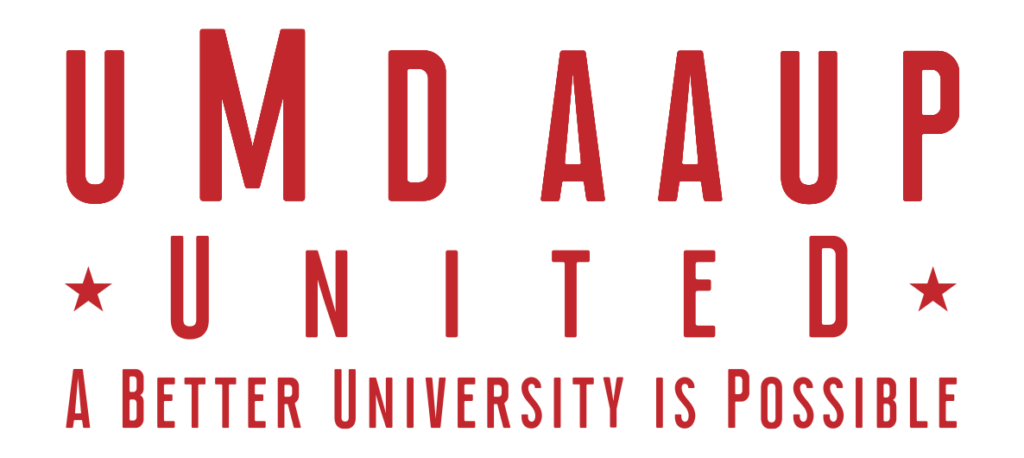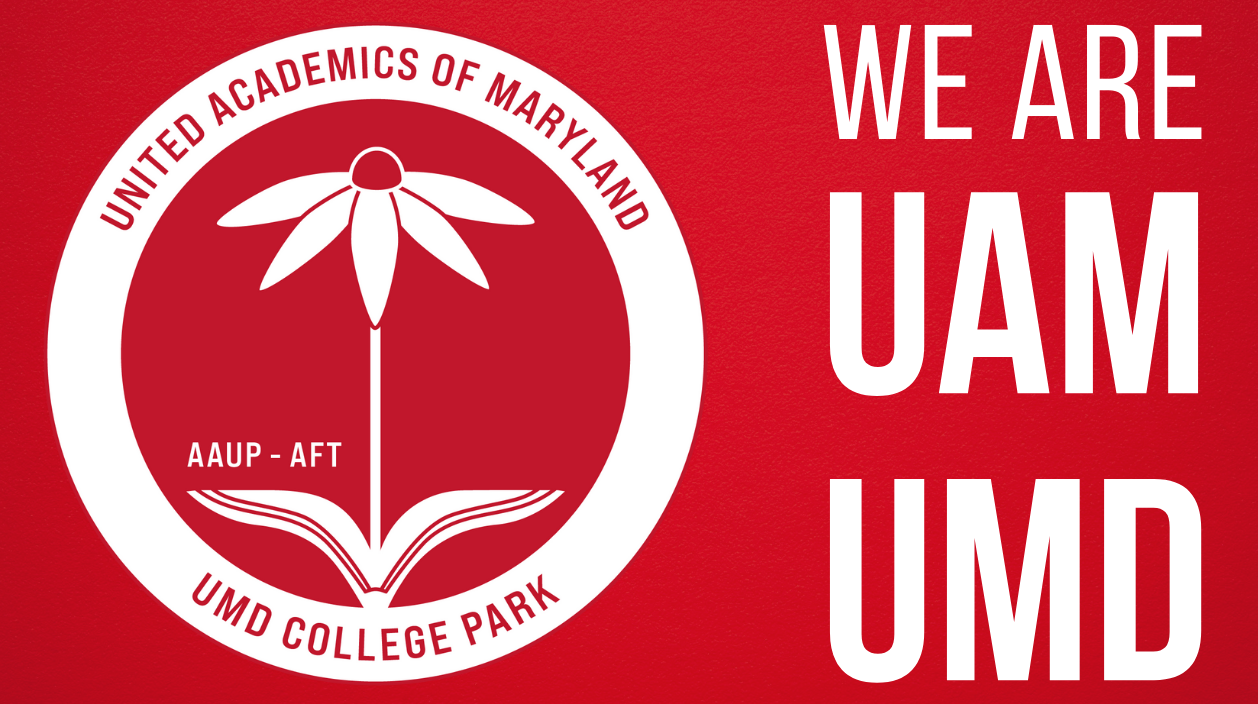
17 January 2022
Dear President Pines, Provost Rice, and Chief Medical Officer Marinopoulos:
As officers of our campus chapter of the American Association of University Professors, we write to express our appreciation that UMD has taken some crucial steps to mitigate the spread of COVID19 and also to express our concerns. We are concerned mainly about a return to on-campus teaching during the current surge of the highly contagious Omicron variant, with positive rates above 20% in Maryland on January 17. We are also concerned about the university not currently having plans for randomized testing and improving indoor ventilation.
In the past week, we have begun to hear from faculty members who are concerned about the risks posed by a full return to in-person teaching. Their concerns are not just for their own safety but also for family members, the University and Prince George’s county communities, and the healthcare workers on the frontlines of the pandemic. Many of our faculty—an overriding majority—have one or more risk factors: many are over age sixty, have comorbidities, have unvaccinated children at home, care for people at high risk, and/or face challenges in securing consistent childcare. We now know that even vaccinated individuals can easily spread the new variant. Given that the infection rates on January 24 will probably remain shockingly high, we suggest that individual instructors be allowed to select the mode of instruction during the first two weeks of classes, with face-to-face instruction becoming the norm only after COVID19 becomes less pervasive in the state. We urge you to make this decision now, so that faculty have time to plan for the start of the new semester.
We are especially concerned that the policy outlined in your letter of January 15 requires graduate instructors, professional track faculty and pre-tenure faculty who face job insecurity to advocate for themselves. As a result, the overriding mandate to deliver instruction face-to-face will lead faculty to take incommensurate risks that provide little pedagogical benefit. Instructional faculty who do not have job security may believe—or be made to believe—that their continuing employment depends on following administrative directives. Moreover, the policy leaves the decision in the hands of administrative superiors in programs, departments, and colleges. These decisions can vary widely, and they can be capricious. Equitable treatment requires universal standards. We ask for a clear policy that allows individual instructors to decide how instruction is delivered during brief periods of up to two weeks.
In the medium- to long-term, UMD needs to take steps to improve overcrowding and ventilation in classrooms and other workspaces, since the medical community now understands that better ventilation systems are key to preventing transmission. While conditions vary greatly across individual buildings at UMD, ventilation is often inadequate, and there is pervasive overcrowding. Graduate student instructors and non-tenure-track faculty are often assigned to the most overcrowded and poorly ventilated rooms. The condition of classrooms will be a continuing concern as new variants of COVID19 and influenza continue to spread, even as this current Omicron surge subsides. Changes can be as simple as portable fans and air filters in most classrooms and making sure windows are functional and can be left open more often, with guidelines for instructors and custodians. Longer term changes would require updating ventilation systems generally. Such investments now will pay off not only in the short term but the longer term.
Finally, we urge you to take immediate action to introduce other basic policies, especially randomized testing, as is being done by local school districts. This can be a powerful tool to reduce transmission.
Faculty continue to be concerned about transparency and consultation. It is crucial that faculty on the front lines, as well as public health experts, be consulted as part of the decision-making process, and that you articulate clearly the rationale for policies.
We note in closing that most faculty are eager to return to face-to-face instruction. Few want a repeat of last spring. At the same time, faculty have grown more nimble in their use of technology and have learned new modalities of instruction. We trust that we can give students a rich curricular and extracurricular experience, without unnecessary risk.
Yours sincerely,
Holly Brewer, President
Karin Rosemblatt, Vice President
Luka Arsenjuk, Secretary
Louiqa Raschid, Treasurer
Nate Beard, At Large
Solomon Comissiong, At Large
University of Maryland Chapter
American Association of University Professors
